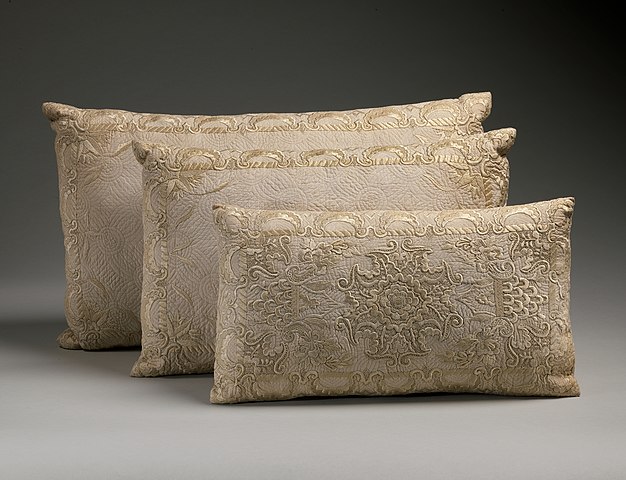
Thammasat University students who are interested in political science, history, cultural studies, economics, business, education, sociology, cultural and social anthropology, and related subjects may find a newly available book useful.
Culture as Soft Power: Bridging Cultural Relations, Intellectual Cooperation, and Cultural Diplomacy is an Open Access book, available for free download at this link:
https://library.oapen.org/handle/20.500.12657/59456
The TU Library collection includes other books about different aspects of culture as soft power.
The website of the Institute for Cultural Diplomacy notes that the political scientist Prof. Joseph S. Nye made a distinction between conducting regional and international relations by so-called hard power or soft power. He described soft power as the ability to persuade through culture, values and ideas, as opposed to ‘hard power’, which conquers or coerces through military might. Hard power has traditionally been used by governments to conduct international and regional relations, yet the increasingly interconnected world stage highlights the need for cooperation on a new level. This is where the role of soft power as a form of cultural diplomacy becomes significant. On this basis, cultural diplomacy is not secondary to political or economic diplomacy, but functions as an intrinsic and necessary component of it.

The publisher’s description of the book notes:
Including a thorough literature review and a number of case studies referred to cultural institutions and organisations, this book sheds light on different usages of culture as a source of soft power. Through an innovative and interdisciplinary approach, it addresses issues tackled in international cultural relations, intellectual history, comparative literature, sociology of literature and global literary studies.
The book’s introduction states:
In politics, culture matters. Culture might not decide the outcome of a military conflict, but it can certainly explain the reasons behind a political crisis or why agents and agencies may be willing to come into conflict and fight for or against a cause. We finished this chapter as the entire world shuddered before the terrifying Russian bombings over Kiev and Kharkiv. The media, politicians, and much of our society acknowledge Ukraine’s European values. But history tells us that the struggle for Eurasian borders is nothing new, and empires and contemporary governments compete to maintain political and cultural hegemony but also to keep border territories free from the influence of opposing powers. Much has happened since Vladimir Putin was elected in 2000, namely, the Russian occupation of Georgian territories and the annexation of Crimea. The Maidan protests in 2013 only reminded us of the Ukrainian government’s decision to reject signing the European Union-Ukraine Association Agreement on the same year in favour of keeping their closer relations to Russia. Therefore, it seems clear that trying to join the EU has not only been a political decision, but also a struggle for cultural dominance between Russia and the Western world. Culture matters in domestic and international politics, as shared culture can create a powerful sense of community. It can also be used to consolidate a given collectivity or to shape its image in the international arena. By taking a global approach, this book stresses the importance of acknowledging the role of cultural practices and the relevance of historising cultural relations, intellectual cooperation, and cultural diplomacy in order to better understand shifting power dynamics. By collectivity, we refer to a group of people who identify with each other through their shared features – be they cultural, linguistic, ideological, or of any other kind – who benefit from some form of collective agency. We include political collectivities based on a given territory – states or regions, but also substate and supranational territories – as well as ethnic, linguistic, gender, confessional, ideological, and professional collectivities, to name but a few.
The relationships between culture and politics, and more precisely, the political uses of culture, constitute a broad topic1 that has been addressed in a variety of disciplines in the humanities and in the social and political sciences. In the humanities, the issue can be addressed from different scales, considering the domestic uses of a culture and its foreign purposes. On the one hand, from a national-scale perspective that pertains to the domestic, relevant topics may include the role of culture in the construction of a given collectivity, the political engagement of cultural actors, and cultural policies, that is, the ways national cultures are regulated and promoted by governments and other public actors. On the other hand, from an international or transnational approach, disciplines working with cultural contact, exchange, or transfer have also addressed the political uses of culture. For example, we can find abundant literature discussing power relations and the political dimensions of translation in the field of translation studies. Thus, the previously mentioned topics have also been addressed in relation to how translation affects the forging of collectivities, the political engagement of translators, and the growing field of translation policy. To give a specific example: the translation policy of national institutes for culture can only be understood within a set of relationships that connect multiple spaces on both the local and global level. Likewise, we may also analyse the political uses of translation regarding the role of translators and interpreters in international relations and world politics. Global approaches to literature have also favoured the problematisation of relationships between cultures and especially the understanding of how culture is deployed politically. Indeed, that culture and literature are relevant as ways to get to know the Other and enhance a sense of the local is generally assumed. However, culture and literature also have subversive potential and can be mobilised to transgress national borders and challenge homogenising ideas such as that of world literature, thus showing their crucial role in the definition of collectivities.
In the domain of the social sciences, the relationship between politics and culture has been the object of extensive writing as well. Among the different theories emerging in the field of sociology, Pierre Bourdieu provides fruitful concepts and insights to tackle the relationships between the symbolic and the material, the social functions of culture, and the reproduction of power relations. His work has contributed to rethinking the articulations between power in politics not only in the social sciences, but also in socially oriented disciplines in the humanities, such as the sociologies of literature and translation.

(All images courtesy of Wikimedia Commons)
